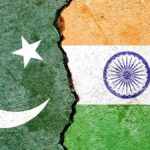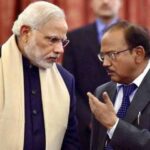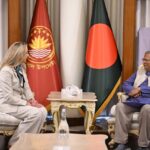
Muhammad Ullah: Kashmir is a legal contest between Pakistan and India. The revocation of Article 370 and 35A of the Indian Constitution by the BJP government to bifurcate and absorb the disputed territory into the Indian dominion has legal consequences.
This unilateral action of the Indian government is contravention to international law, bilateral treaties and the UNSC resolutions that bar the parties from bringing about any material change in the situation.
India by far attempts to portray the Kashmir issue as an internal affair; however, the UNSC resolutions on the disputed territory, India’s pledges during conditional accession of Jammu and Kashmir and bilateral treaties between India and Pakistan clearly provide legal evidences that the state of Jammu & Kashmir is an international issue which is disputed between the two countries.
A unilateral action by either India or Pakistan will amount to be the violation of the fundamental principles of international law.
The UNSC resolution 47, which was adopted on 21 April 1948, urges Pakistan and India to prepare grounds for plebiscite.
It states that the question of accession of Jammu and Kashmir should be decided “through the democratic method of a free and impartial plebiscite.
” It endorses Kashmiris’ legitimate right to self-determination. In addition to this, India’s first Prime Minister Jawaharlal Nehru stated in a telegram, which was sent to Pakistan’s first Prime Minister Liaqat Ali Khan, on 30 October 1947, that “[o]ur assurance that we shall… leave the decision of the state to the people of the state is not merely a pledge to your government but also to the people of Kashmir and to the world.
” Similarly, in Simla Agreement on 2 July, 1972, India and Pakistan mutually agreed that “[n]either side shall seek to alter it [The Line of Control] unilaterally, irrespective of mutual differences and legal interpretation.
” In this way, these are some sufficient legal instruments which negate India’s position altogether that the Indian Illegally Occupied Jammu and Kashmir (IIOJ&K) is its internal affair.
After the rescindment of the autonomous status of Kashmir, the Indian government has deployed almost one million troops in the valley, thereby making it the most militarized zone in the world.
Indian troops continue to commit naked aggression in the valley, and fundamental rights of Kashmiris have been grossly abused.
Arbitrary detention of the youth; blackout of media; restriction on rights to freedom of opinion and expression, liberty and security, mobility, and privacy; access to justice; and alleged sexual assault are some incontrovertible evidences of systematic violation of fundamental norms of international law.
Victoria Schofield states in the book “Kashmir in Conflict”, “the beauty and tranquillity of the valley was almost tangible but it hides an inner pain.
” Indian aggression in the valley testifies that pain is pulpable now. Moreover, Anurudha Bhasin writes in the book, “A Dismantled State: The Untold Story of Kashmir After Article 370”, that “the apparatus of terror and control — operated in the form of night raids, arbitrary arrests, detentions, torture and alleged sexual assault — continued for days. ”
The International Covenant on Civil and Political Rights (ICCPR), which was adopted in 1966, is an international human rights treaty.
India is signatory to the ICCPR, which enables people to enjoy a wide range of human rights such as “freedom from torture and other cruel, inhuman or degrading treatment or punishment; fair trial rights; freedom of thought, religion and expression; privacy, home and family life; and equality and non-discrimination.
” Lamentably, Indian actions in the valley have been the violation of all these fundamental rights.
India’s attempt to bring about demographic change in Kashmir and assault on Kashmir identity are in contravention to international law, the UN Charter, the UNSC resolutions to hold impartial plebiscite in the valley, the International Covenant on Economic, Social and Cultural Rights and the Fourth Geneva Convention, which is a customary international law, that bars parties from depriving people of their fundamental rights, especially in conflict zones.
The International Humanitarian Law has been flagrantly violated in IIOJ&K where people have been subjected to systematic pogrom and are deprived of life and liberty.
By depicting Kashmir an internal issue, India has infringed the legal right of Kashmiris for self-determination.
The recent wave of public outrage appears to be an evidence of growing public collective consciousness for both internal and external self-determination from India.
There are multiple international law instruments, both binding and non-binding in nature, clearly put India under an obligation to allow people of Kashmir to exercise their fundamental right of self-determination.
It has been recognized as a right in UN Charter, the UNSC resolutions on Kashmir, the Declaration of Principles of International Law Concerning Friendly Relations and Cooperation Among States, Helsinki Final Act, and Vienna Declaration and Programme of Action.
Similarly, the International Court of Justice (ICJ) has also pronounced through advisory opinions in cases, like Namibia, Israel Wall, Chagos Archipelago and East Timor, which provide legal sanctity that right to self-determination is universal jus cogens and ergaomnes obligations.
Therefore, Pakistan must propagate the Kashmir cause on the basis of international law. Global human rights organizations should be apprised of India’s inhumane treatment of people in Kashmir.
Self-determination is an inalienable right of Kashmiris and it becomes the responsibility of world community and international organizations, which promise to uphold the norms of international law, must help Kashmiris in realizing their right to self-determination by pressurizing India to reverse its unilateral action of abrogating the autonomous status of Kashmir and to cease its blatant human rights violation in the valley. In fact, the role of great powers occupies a key position in resolving the Kashmir issue.






